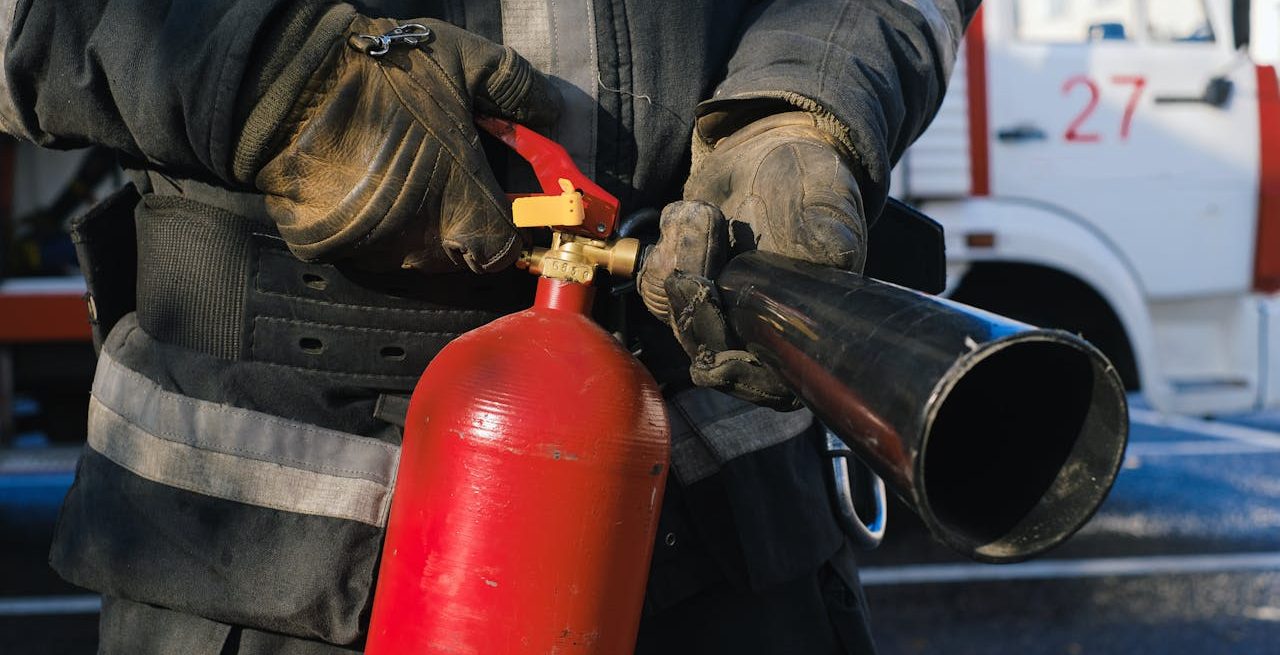Fire Prevention Week 2024 – Is Your Restaurant Safe?
3 Min Read By Society Insurance
As a result of the Great Chicago Fire that killed 250 people in 1871, the National Fire Protection Association has declared the public observance of Fire Prevention Week since 1922, marking more than 100 years this year of the public observance. The holiday was later cemented by President Coolidge, marking the longest-running public health and safety observance on record.
This year’s 102nd year of honoring Fire Prevention Week is held from October 6-12 with the theme: Fire Prevention Week 2024 – Smoke Alarms: Make Them Work For You!
Society Insurance has been working alongside business owners for more than a century, seeing first-hand the devastating effects a fire can have on the establishments that make communities great. In 2022, local fire departments responded to an estimated 1.5 million fires in the U.S. These fires caused 3,790 civilian fire deaths and 13,250 reported civilian fire injuries. The property damage caused by these fires was estimated at $18 billion.
Ahead of this year’s Fire Prevention Week, Society Insurance has put together top tips for hospitality businesses to better protect their building, staff and patrons.
Make Your Alarm System Work for You
Business owners can lower the chances of large property losses or even a total loss of their business with a better smoke alarm and general alarm system.
A central alarm system has an Advanced Encryption Standard (AES) connection vs. a standard telephone line. AES is a two-way radio transmission wireless alarm communication system that is self-configuring. It is faster than a telephone line and has a built-in backup system. It can use two-way transceivers for communicating data between the control panel located at your business to the central receiver at the monitoring location. Wireless signals can be rerouted around trouble spots with the signal being continuously sent until it is received and an acknowledgement is sent back. AES reduces concern of the telephone line going out, which would disable your monitoring system. Plus, AES systems are usually more cost effective and cheaper than telephone line communication. Your AES system should be National Fire Protection Association (NFPA) compliant and UL approved.
The Best Offense is a Defensive Kitchen
Cooking equipment is probably the most important thing inside a restaurant and/or bar – and it’s also a leading cause of fires. These fires are often due to failed, aging equipment; improper installation and maintenance; poor cleaning practices; and inattentive or careless use. Restaurant owners can mitigate these risks by hiring qualified professionals for installation, maintenance, and cleaning service. Additionally, they can train employees on proper cleaning, frequency intervals and safety procedures.
When it comes to your expensive equipment, don’t take shortcuts. Get your equipment serviced regularly by an experienced technician. Take a hard look at your systems and procedures and make changes as necessary to ensure your staff, customers and business stay safe.
Class K Gets the A
Even though the classic red ABC fire extinguisher may be able to temporarily put out a grease fire, a class K fire extinguisher with its wet chemical agent will help keep the fire from reigniting. Silver class K fire extinguishers are meant exclusively to handle kitchen grease fires. They utilize a foam-forming agent that prevents persistent kitchen fires from reigniting. Most commercial cooking installations require a fixed fire suppression system that must be certified UL 300 and regularly serviced by a qualified contractor. To provide both fixed and portable fire suppression, a Class K portable fire extinguisher must also be installed and visible. Train all staff on their use.
“FIRE!” is one word no one wants to hear in a hospitality business, and it is the call in the night that owners and managers never want to receive. Reduce the risk and mitigate damage by ensuring you have the best possible alarm system, updating and cleaning your kitchen equipment, and investing in Class K extinguishers.
This information is provided as a convenience, and it must not be assumed that it has detected all unsafe acts or conditions. This information is not professional advice; it is designed to assist you in recognizing potential safe work problems and not to establish compliance with any law, rule or regulation.


